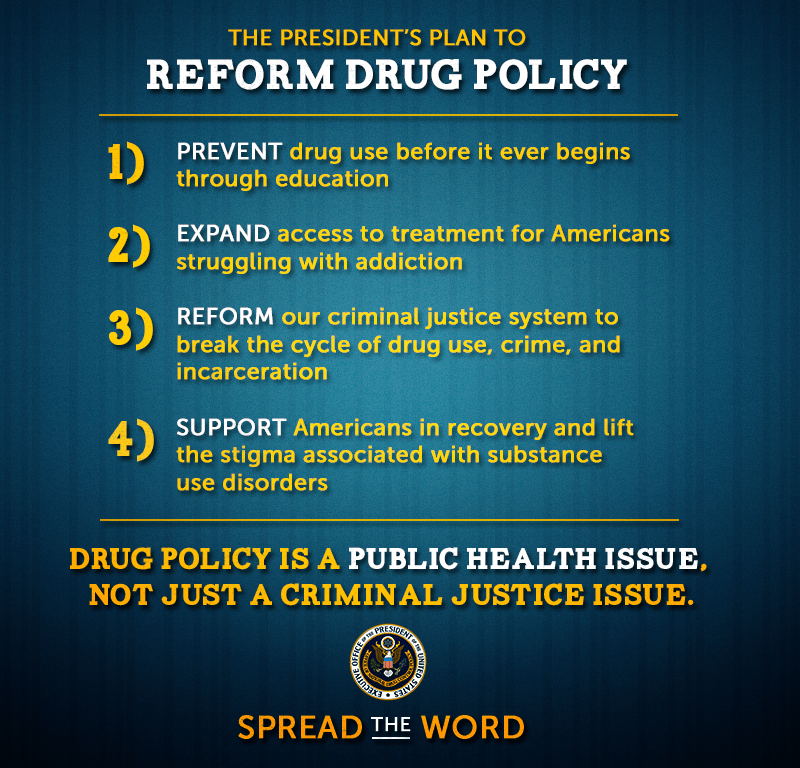An End to the “War” on Drugs, The Obama Administration Lays Out a Medically Oriented Strategy
Today may prove to be one of the more significant dates in recent criminal justice policy history. The White House, through the Office of National Drug Control Policy, has released its National Drug Control Strategy for 2013 and in it rejects the “law enforcement-only policy of the ‘war on drugs.’” The Obama administration has never been more direct in its rhetoric against the long-standing “war,” the US policy of attempting to curtail drug abuse through supply reduction and criminal sanctions—a policy which has been the predominant driver of the Mass Incarceration phenomenon. However, the report is just as clear in its rejection of what it refers to as the “opposing extreme[] of legalization.” The strategy claims that neither of these approaches is “humane, effective, or grounded in evidence.” Rather, the Administration supports what it refers to as a “third way,” one that is “rooted in the knowledge that drug addiction is a disease of the brain—one that can be treated, recovered from, and, most importantly, prevented.”
The following image, which accompanied the release of the strategy on the ONDCP website, illustrates the new direction:
The strategy opens with these statements along with noting what the Obama administration has already done to pursue this scientific and medically oriented control strategy; this includes, among other things, ensuring that treatment for substance abuse disorders is integrated into the mainstream healthcare system through the Affordable Care Act (ACA). Prior to the ACA, chronic substance dependence problems were classified as pre-existing conditions and not covered by insurance providers. The strategy broadly outlines how the healthcare field will adopt procedures to screen, briefly intervene, and refer treatment to those suffering from addiction; and it briefly discusses how these teams of healthcare practitioners will need to understand the disease of addiction and the wide range of its attendant challenges and settings.
The Obama administration’s policy on drug control has not always been as focused on medical treatment or as opposed to the standard tools of the war on drugs. In his first term in office, President Obama chose to increase funding for the Byrne Grant Program, a Department of Justice program which supplies funding to local law enforcement agencies to run narcotics task forces; the Byrne program has been criticized by many opponents of the War on Drugs for incentivizing the sanctions-driven “war” that the administration now seeks to end. Furthermore, President Obama’s budget during his first two years in office had a greater ratio of dollars sent towards law enforcement as opposed to treatment than even the Bush administration. This latest medically oriented strategy, however, is a heartening move away from a “war” that the administration itself now calls ineffective and costly.
The effects of this new direction are already being felt in Cook County. The Cook County Medicaid Waiver of November 2012 has opened up the opportunity for early enrollment of defendants in February 2013, a year before the implementation of the ACA, significantly expanding treatment for substance abuse throughout the County. At Chicago Appleseed, we have been working to expand access to treatment for drug offenders as part of the Health & Justice Initiative. And more broadly, Chicago Appleseed is advocating ways we can lessen our reliance on incarceration for drug offenders through our recent report on Strategies to Enhance and Coordinate Cook County Diversion Programs and our policy brief on Early Case Assessment in Urban Jurisdictions.


